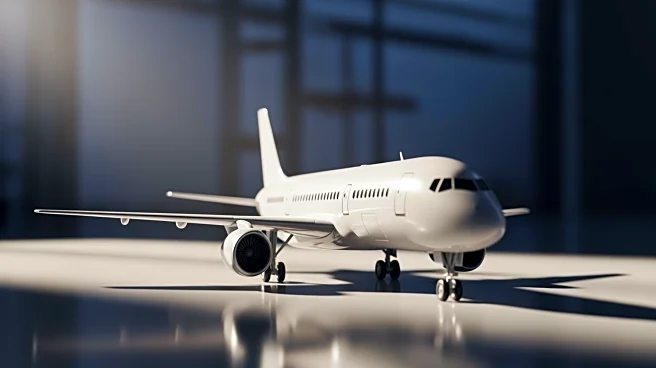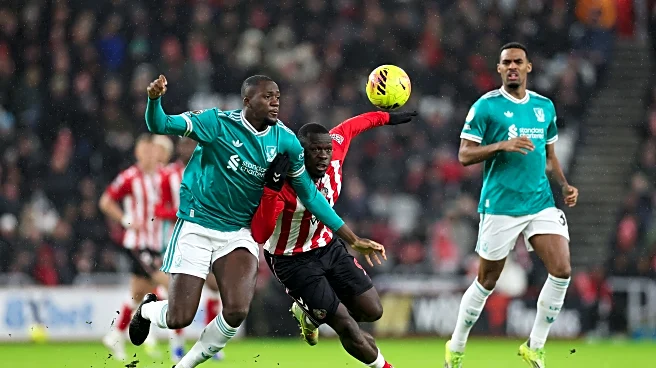What's Happening?
Striking workers at Boeing Defense in the St. Louis area have rejected the company's latest contract proposal, prolonging a strike that has already delayed the delivery of fighter jets and other defense programs into its 13th week. The International Association
of Machinists and Aerospace Workers (IAM) District 837, representing approximately 3,200 members, stated that Boeing's offer failed to meet their needs. The five-year proposal was similar to previous offers that union members had already turned down. Boeing has maintained that it will not significantly improve its offer, despite the union's approval of a proposed four-year contract in September, which Boeing management has refused to consider. The IAM estimates that their proposal would add about $50 million over the duration of the agreement.
Why It's Important?
The ongoing strike at Boeing Defense is significant as it affects the timely delivery of critical defense equipment, including fighter jets, which are essential for national security and defense operations. The prolonged labor dispute highlights the challenges in negotiations between large corporations and labor unions, particularly in the aerospace sector. The strike underscores the broader issues of labor rights and fair compensation, which are pivotal in maintaining workforce morale and productivity. Boeing's refusal to consider the union's proposal may lead to further disruptions in production schedules, impacting defense contracts and potentially leading to financial losses for the company. The situation also reflects the growing tension between corporate management and labor unions in the U.S., which could influence future labor negotiations across various industries.
What's Next?
As the strike continues, Boeing and the IAM may face increased pressure to reach a resolution. The prolonged disruption could prompt intervention from government officials or third-party mediators to facilitate negotiations. Boeing may need to reassess its stance on the contract offer to prevent further delays in defense deliveries and mitigate potential financial repercussions. The union may continue to rally support from its members and other labor organizations to strengthen its bargaining position. The outcome of this labor dispute could set a precedent for future negotiations in the aerospace industry and influence labor relations in other sectors.
Beyond the Headlines
The strike at Boeing Defense raises broader questions about corporate governance and executive compensation, as highlighted by Boeing CEO Kelly Ortberg's substantial earnings amidst the labor dispute. This situation may spark discussions on the ethical considerations of executive pay in relation to employee wages and benefits. Additionally, the strike could lead to increased scrutiny of labor practices within the aerospace industry, prompting calls for more equitable labor policies and practices. The ongoing dispute may also influence public perception of Boeing and its commitment to fair labor practices, potentially affecting its reputation and stakeholder relations.

















